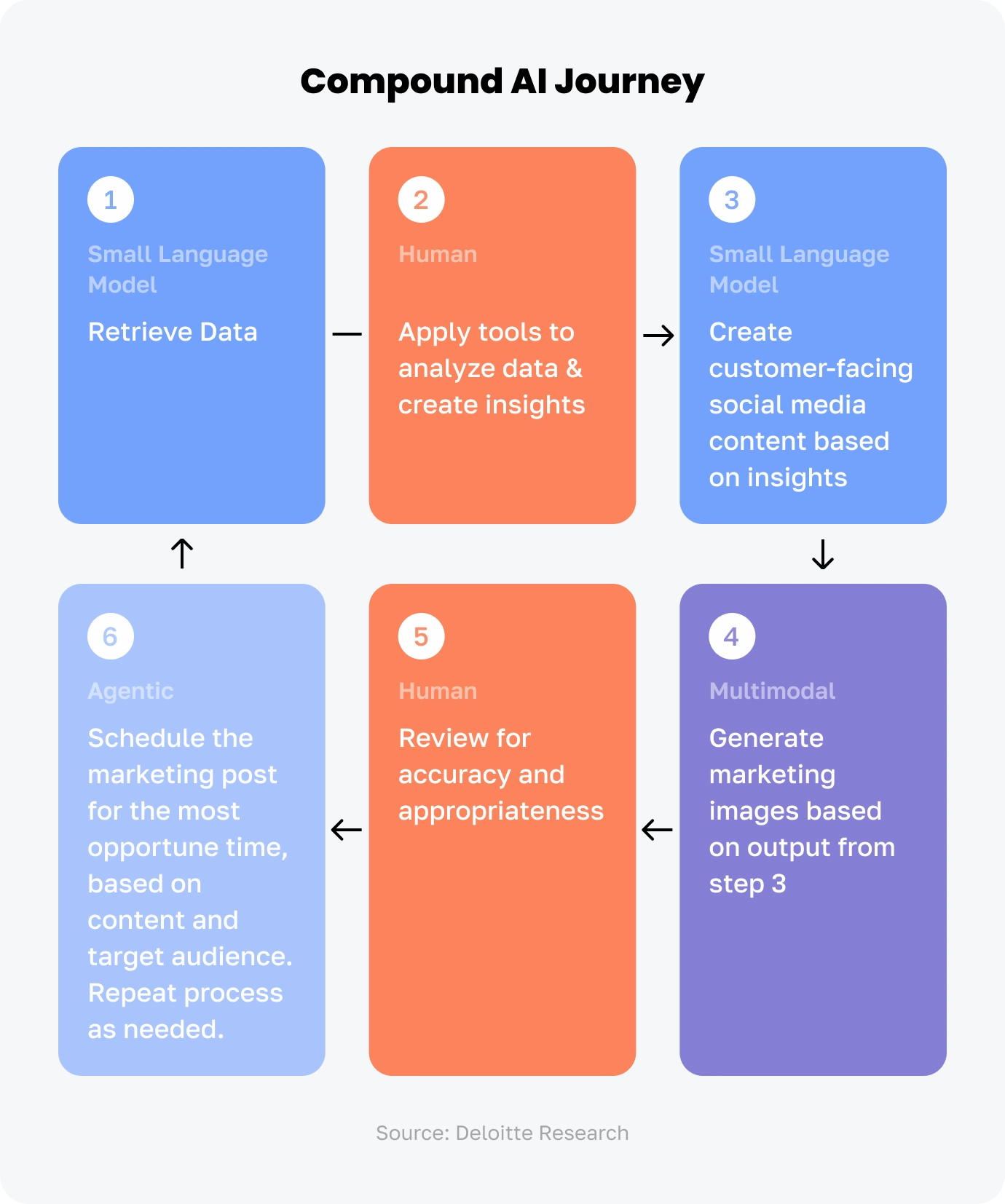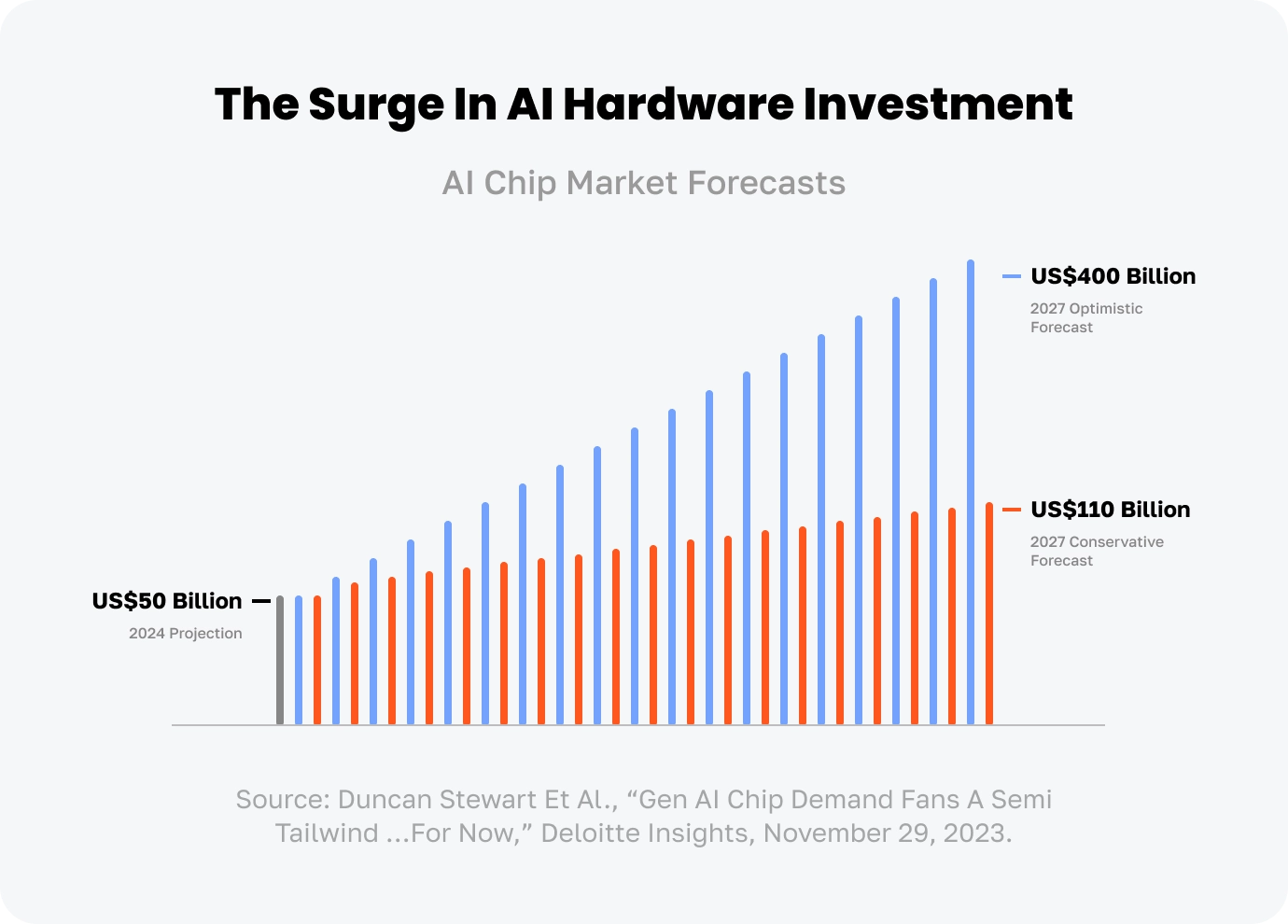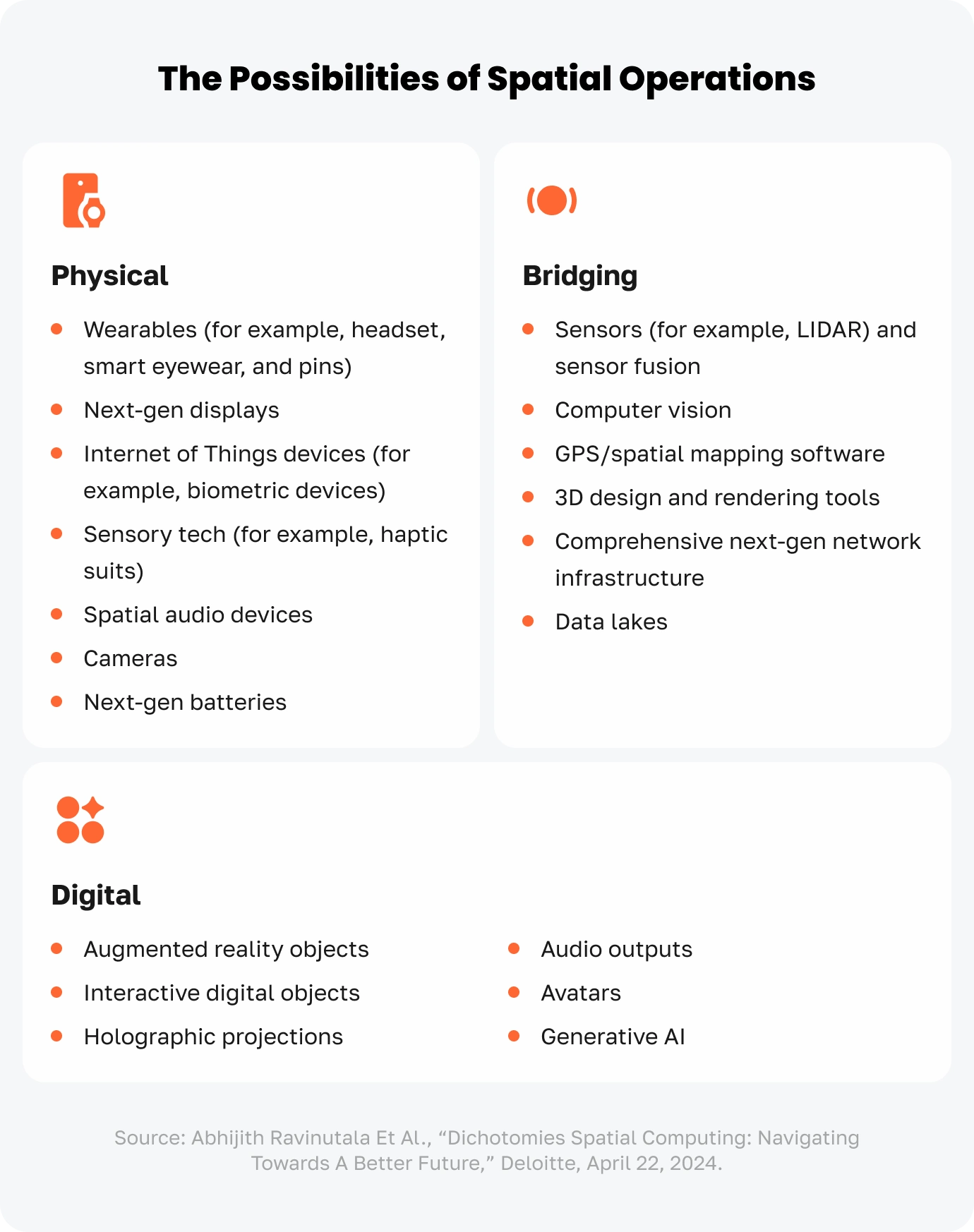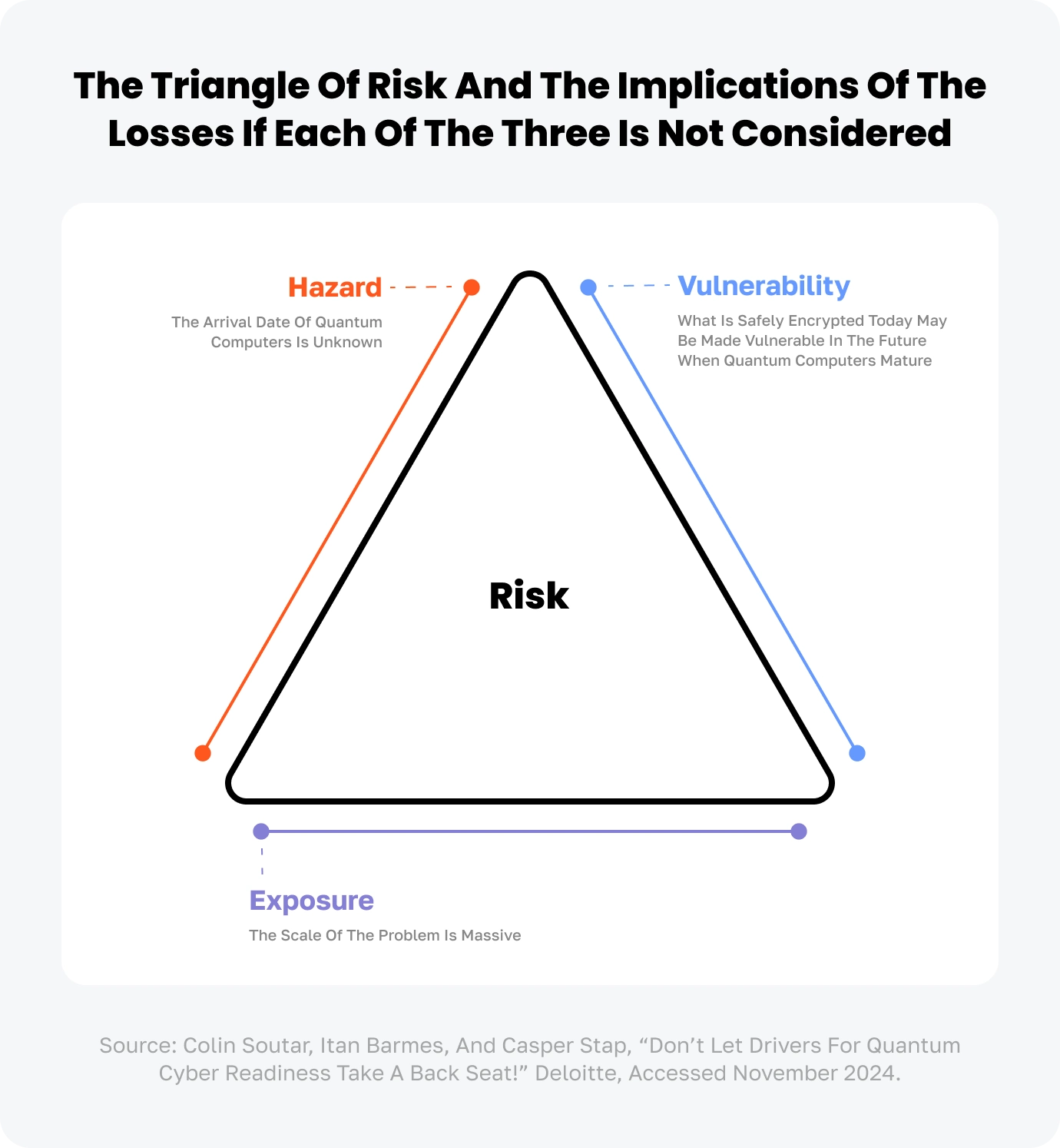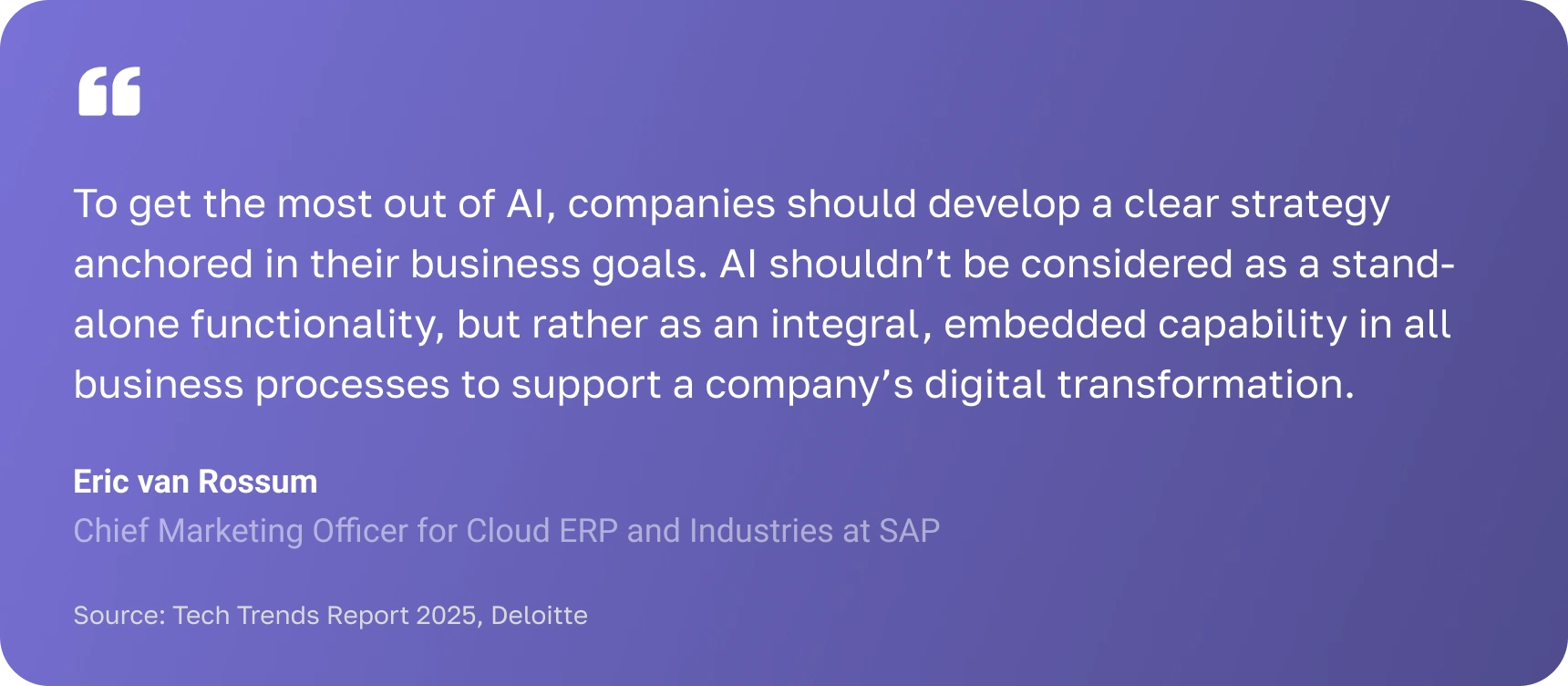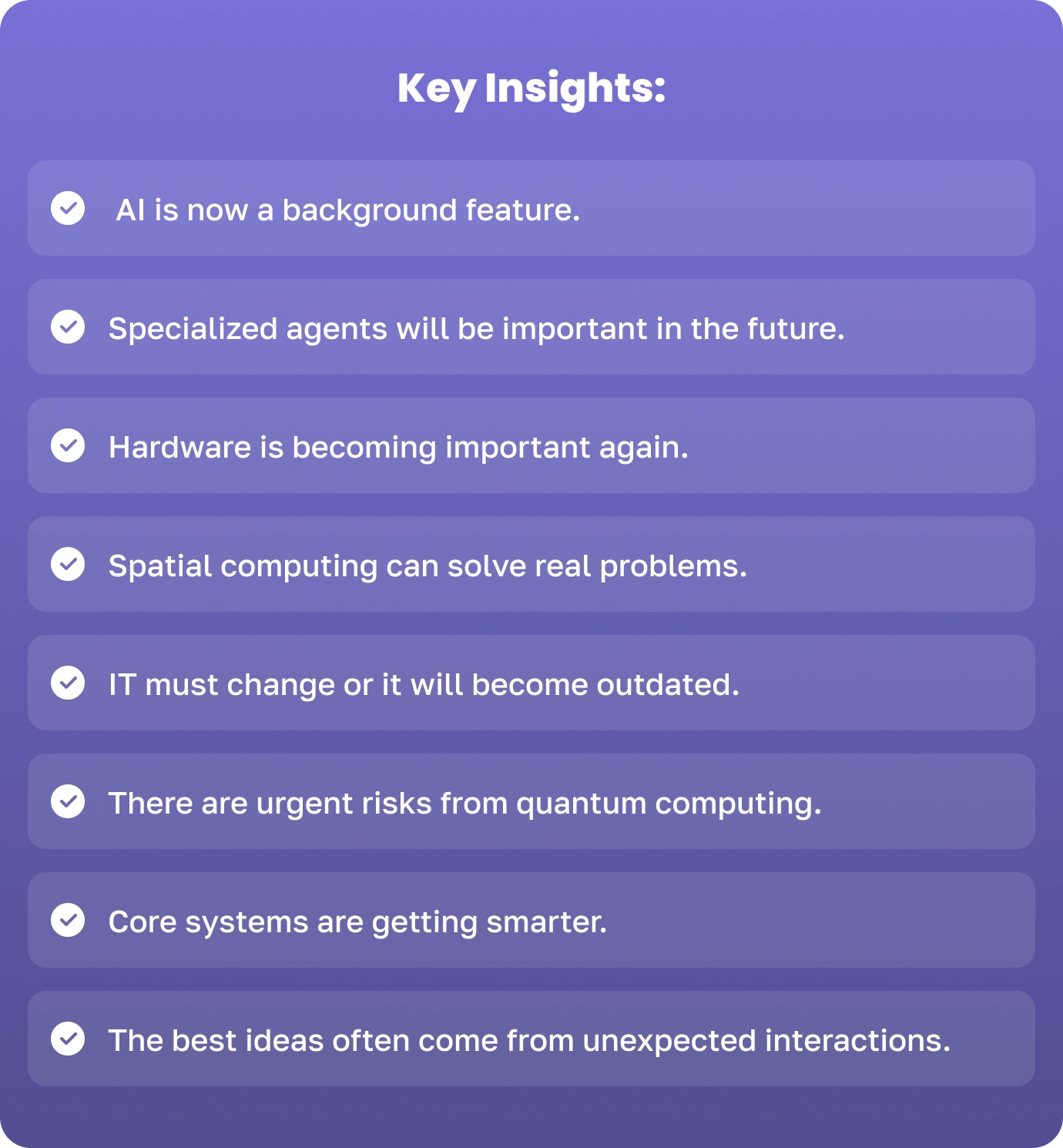AI Future: It’s About to Disappear (And That’s a Good Thing)
Forget flashy AI: it’s becoming unseen infrastructure. Specialized agents take action. Hardware booms. Quantum threats loom. That's the AI future.

Table of Contents
Do you remember when being “online” was a big deal? Or when you actually thought about how electrons made your lights work?
That’s the AI future.
According to Deloitte’s latest tech forecast, AI won’t just be a cool gadget we “use.”
It will be like electricity, which means completely necessary, completely unseen, working quietly behind the scenes.
Is traffic moving better? That’s AI at work. Does your child’s math tutor adapt in real-time to the child’s frustration? That’s AI too. Can your doctor identify unusual patterns on a scan and, therefore, detect your potential health issues? Yes, that’s AI.
We won’t be having “conversations” with it. We’ll just live in a world that functions more smoothly.
The main message is to stop focusing on flashy chatbots.
Instead, integrate AI into your core systems, as it is becoming the essential foundation, not just a trendy feature.
Small is the New Big (and Agents are the New Apps)
We were impressed by large language models (LLMs) that can write poems and pass the bar exam.
Many companies find large AI models too complex, thinking it’s like taking a sledgehammer to crack a nut.
They are now focusing on smaller, specialized AI models trained on specific datasets.
For example, an inventory bot that knows your warehouse very well, but not the entire internet.
Even more extensive?
AI Agents.
Picture one managing your Q2 financial tasks overnight, while another books flights that perfectly match your preferences (window seat, aisle? never!), and a third resolves a customer’s problem by actually accessing systems and fixing it.
The phrase “There’s an app for that” is changing to “There’s an agent for that.”
The hardware industry is coming back.
Software was once the primary focus for years.
Now, the AI future requires robust hardware to function.
Think about that:
- Specialized chips, such as GPUs and NPUs, are built for the heavy tasks of AI. Demand for these chips is growing quickly, with predictions suggesting a $400 billion market by 2027.
- The AI PC Revolution: Your old office laptop will soon get a major upgrade. New PCs equipped with neural chips will run powerful AI applications without requiring an internet connection. This means faster responses, lower cloud costs, and better privacy. Get ready for a hardware update across the company.
- The Issue: Energy. Running this technology requires a lot of power. Data centers are looking for solutions, such as nuclear plants and geothermal energy from Iceland. Improving efficiency is now essential; it’s crucial for survival.
“Spatial Computing” Isn’t Just Metaverse Hype
Forget about bulky VR headsets.
It’s all about combining real-world data from sensors, cameras, and IoT devices with digital technology to understand physical spaces better.
Right now, the main application is simulation:
- Benfica football club uses AI + 3D player models to simulate plays and sell talent for record profits.
- A Canadian health authority built a “digital twin” of its entire hospital system to visualize patient flow and optimize care.
- The main challenge is combining different types of spatial data, like lidar, drone scans, and CAD files. Once this is done, AI agents can easily connect you to the physical world.
IT is undergoing a total transformation (Thanks to AI)
Generative AI for coding and testing software is driving significant changes in the IT industry.
This is a unique opportunity for IT to transition from merely maintaining systems to leading the way in AI development.
Priorities:
- Engineering: Use less manual coding and focus more on AI to help with design and architecture reviews.
- Skill: Using AI to train IT employees on AI (ironic, isn’t it?).
- Cost Control: Use AI tools to manage and optimize cloud spending.
- Infrastructure: Developing systems that can “heal” themselves automatically.
- Safety: Combating AI-driven risks with AI-driven protection.
- The goal is to create a more efficient IT department that manages AI agents and citizen developers, rather than doing everything on its own.
Quantum computing is a serious threat, and your data is at risk now
Quantum computers could break today’s encryption in 5 to 20 years, making data insecure.
Hackers are currently stealing encrypted data, hoping that future quantum computers will be able to easily unlock it.
Don’t wait.
Switching to Quantum-Resistant Encryption (new standards released!) is a large task that takes several years.
Apple and Google are already taking action.
Don’t be part of the majority that does nothing. Start planning right away.
Your ERP system now includes AI features.
Core systems like SAP and Oracle are being rebuilt to focus on the AI future.
This goes beyond just automating payroll.
AI will understand your business logic, predict problems, and suggest new ways to operate.
The main question is: Will you use your vendor’s easy but slow AI tools, buy flexible but messy tools from other companies, or build your own tools, which require a lot of work but give you full control?
Choose carefully. Managing your data is crucial.
The Main Point: Look for Unusual Combinations
The most exciting new ideas will not come from focusing on one specific technology.
They will result from combining different areas: AI with advanced materials, space technology with biotechnology (yes, that means growing perfect crystals in zero gravity for new drugs!), auto giants building moon rovers.
Breadth beats depth.
The winners will notice unexpected links between ideas.
As AI becomes a basic part of our systems, true breakthroughs occur where different ideas meet.
Start looking sideways.
Now, go make sense of it.
